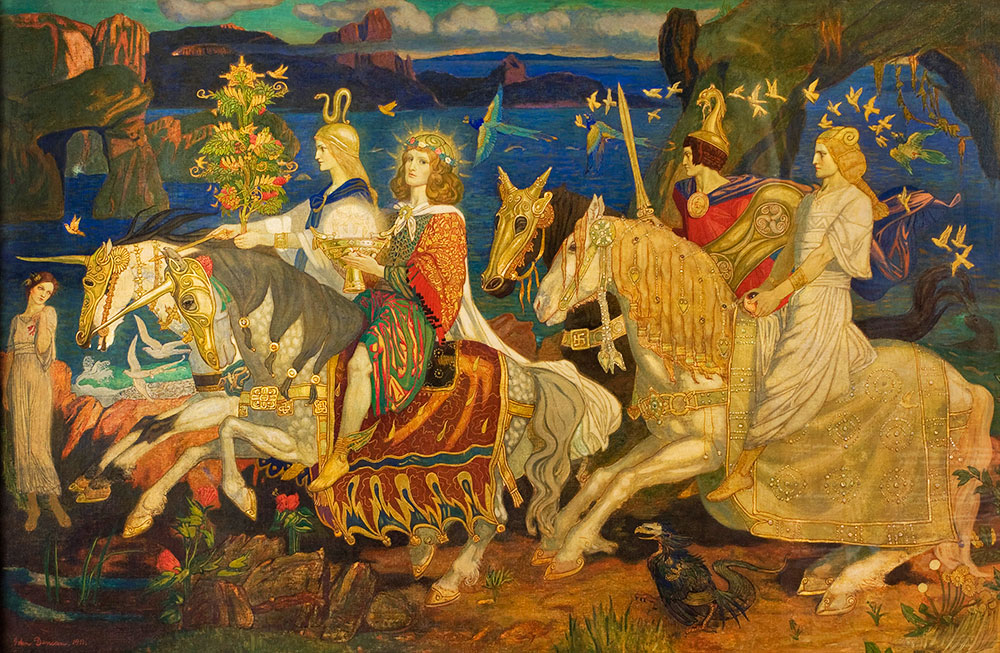
The Tuatha Dé Danann (“Tribe of the goddess Danu”) were a group of gods and goddesses in Irish mythology. They’re believed to have descended from the heavens and ruled over Ireland before the arrival of the Celts. According to myth, they were skilled in magic, crafts, and warfare.
The Tuatha Dé Danann were led by the Dagda and included other well-known gods and goddesses such as Lugh, Brigid, Nuada, and the Morrigan. They were said to have been defeated in battle by the Milesians, a group of Celtic invaders, and forced to retreat to the Otherworld.
The Tuatha Dé Danann were worshipped by the people who lived in Ireland before the arrival of the Celts, who began migrating to the island around 500 BCE. The Tuatha Dé Danann were said to have been skilled in metalworking, agriculture, and other crafts and may have represented a more advanced and sophisticated culture than the Celts who eventually conquered them.
Some historians have suggested that the Tuatha Dé Danann were based on actual historical figures or groups, perhaps leaders or rulers who were deified over time. The name “Danu” may have referred to a real river goddess or mother goddess worshipped in the region.
This aligns with my opinion. I believe the significant figures of the Tuatha Dé Danann could be the survivors of the Atlantean era.
As with most ancient myths, the stories of the Tuatha Dé Danann were likely passed down through oral tradition. I’d suggest that Christian scribes will have heavily influenced the stories during the middle ages. This raises the question of whether Irish mythology influenced Christianity or Christianity manipulated Irish mythology; I’d suggest the former.
Despite these uncertainties, the stories of the Tuatha Dé Danann remain an important part of Irish culture and mythology and continue to be celebrated and remembered today through festivals, art, and other forms of cultural expression.